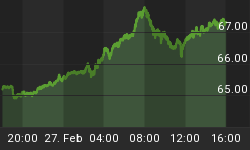Commerce Department data showing a sharp drop in new single-family homes in January has sparked concerns that the entire housing market is in trouble, but economists say we’re putting fear before fundamentals.
According to released data by the Commerce Department, purchases of newly built single-family homes fell 7.8% in January—the second drop in two months. In December, purchases were down 7.6%.
The median sales price in January was $323,000, about 2.4% higher than in January 2017, but almost exactly the same as last year’s full-year average.
So, fewer sales, and no real upward movement in price.
January, however, is the worst month to paint a bigger picture of the U.S. housing market due to seasonal inactivity.
“It is hard to put a lot of stock in a January housing number due to the seasonal lack of activity, so we do not view today’s disappointing selling rate as an indication that the housing market is taking a turn for the worse,” said Thomas Simons, senior money market economist with Jefferies. “We will see better activity as the Spring approaches.”
The data also skews the picture geographically, because the January declines weren’t across the board, but were concentrated in the Northeast and South.
The larger fundamental picture is this: The U.S. housing market has been on a winning streak, helped by rising employment and higher wages.
And there are some other numbers that are persuasive indicators that January data isn’t reliable: Take Home Depot Q4 results, for instance. Related: The Hidden Threats Stock Market Investors Are Neglecting
Home Depot said sales at its stores open for more than a year rose 7.5 percent in the fourth quarter ended Jan. 28, beating out analysts’ average estimate of a 6.5 percent increase.
Higher wages and rising employment have prompted homeowners to buy new homes or remodel existing ones, benefiting Home Depot (NYSE:HD) and its smaller rival, Lowe’s Companies Inc (NYSE:LOW).
But there are still reasons to keep a close eye on upcoming data and revisions, as some analysts think we’re looking at an emerging downtrend.
For one thing, mortgage rates have moved up considerably since the beginning of this year, and this makes home purchases more expensive.
Tight housing inventory has also been pushing prices higher, helping to realize the sharpest year-over-year drop of sales of previously owned homes in more than three years. However, new home supplies are now at their highest since mid-2014 so price pressure may let up.
But new homes do not rule this market, which is dominated by previously-owned homes. At the of the day, we’re looking at a housing market that has regained half the value it lost—a whopping $9 trillion—a decade ago.
Now everyone’s on edge about another housing market crisis, but January data shouldn’t be enough to send investors running for the hills.
By Geoffrey Carpenter for Safehaven.com
More Top Reads From Safehaven.com:
















